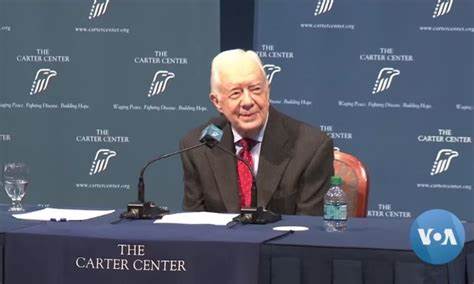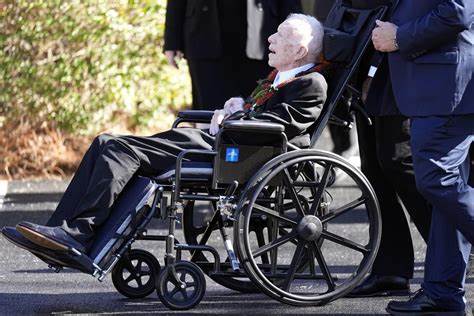In a poignant milestone, Sunday marks one year since former President Jimmy Carter, America’s 39th president, entered hospice care at the age of 99. This significant moment prompts reflection on his enduring legacy and the decisions that led him to choose hospice care over additional medical intervention.

Diagnosed with cancer that had spread to his brain in 2015, Carter has faced health challenges with resilience and grace. Last year, he made the choice to spend his remaining time at home with family, opting for hospice care. Despite the public’s perception of this decision, those familiar with hospice and palliative care find Carter’s situation not uncommon.
Dr. Tammie Quest, Director of Emory University’s Palliative Care Center in Georgia, emphasizes that early referrals for hospice care often lead to better outcomes, with patients experiencing both a longer life and improved quality of life. “Suffering kills,” says Dr. Quest, highlighting the importance of effective pain management, addressing mental health concerns, and meeting care needs to enhance the overall well-being of patients.

Carter’s journey challenges preconceptions about end-of-life care, with the former president surpassing expectations as the longest living president. As he turns 99, we reflect on his remarkable life and the love he shared with his late wife, Rosalynn Carter, who passed away in hospice care last November at the age of 96.
Grandson Jason Carter shared insights into his grandfather’s life, emphasizing the happiness and love that defined their days together. Despite significant physical challenges, Jimmy Carter finds joy in watching baseball games and spending cherished moments with family. This intimate portrait of his life in hospice challenges stereotypes and highlights the importance of compassionate end-of-life care.

As we honor Jimmy Carter’s journey, we also remember Rosalynn Carter, a trailblazing advocate for mental health, who left an indelible mark on our collective memory. Their enduring love and resilience serve as a testament to the power of family, even in the face of inevitable farewells.
In conclusion, the Carters’ story prompts us to reconsider our perceptions of hospice care, recognizing it as a choice that can provide comfort, dignity, and a meaningful connection with loved ones during life’s final chapters.
